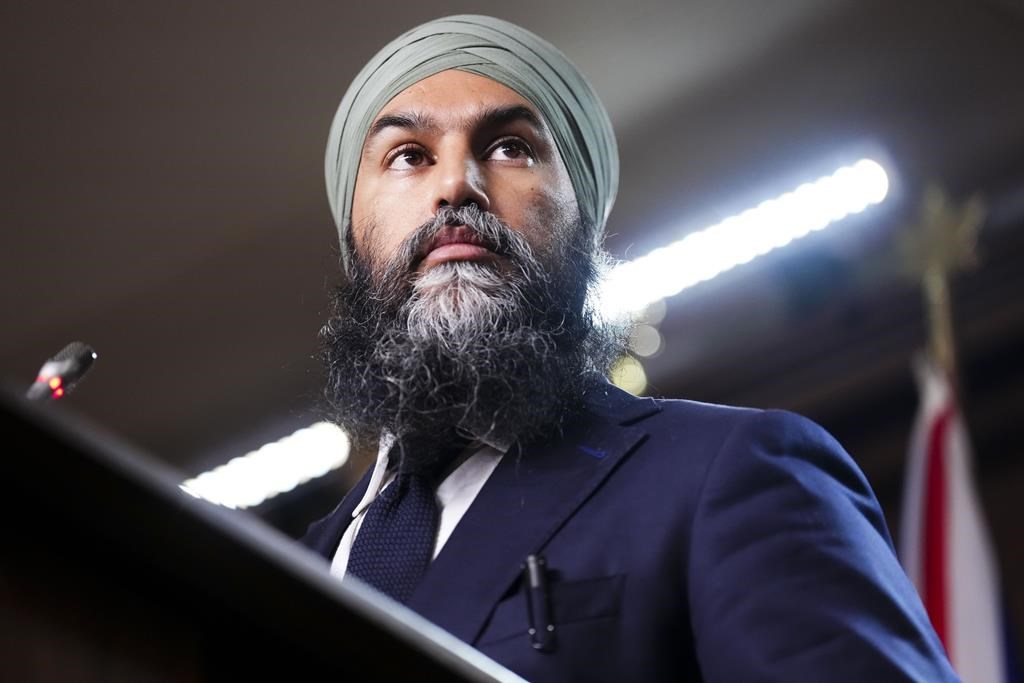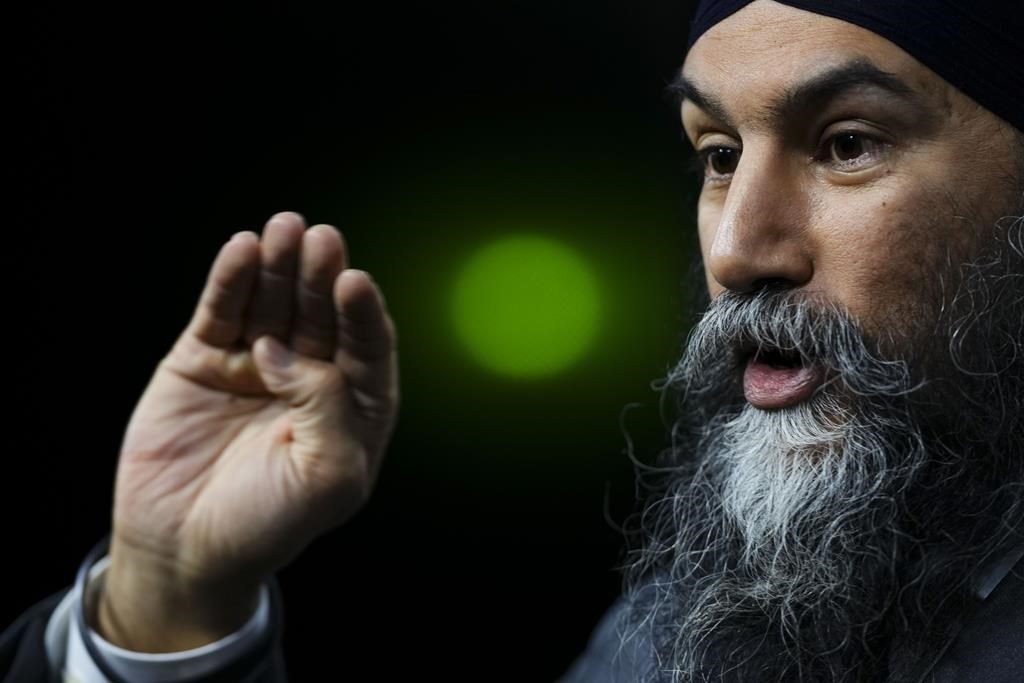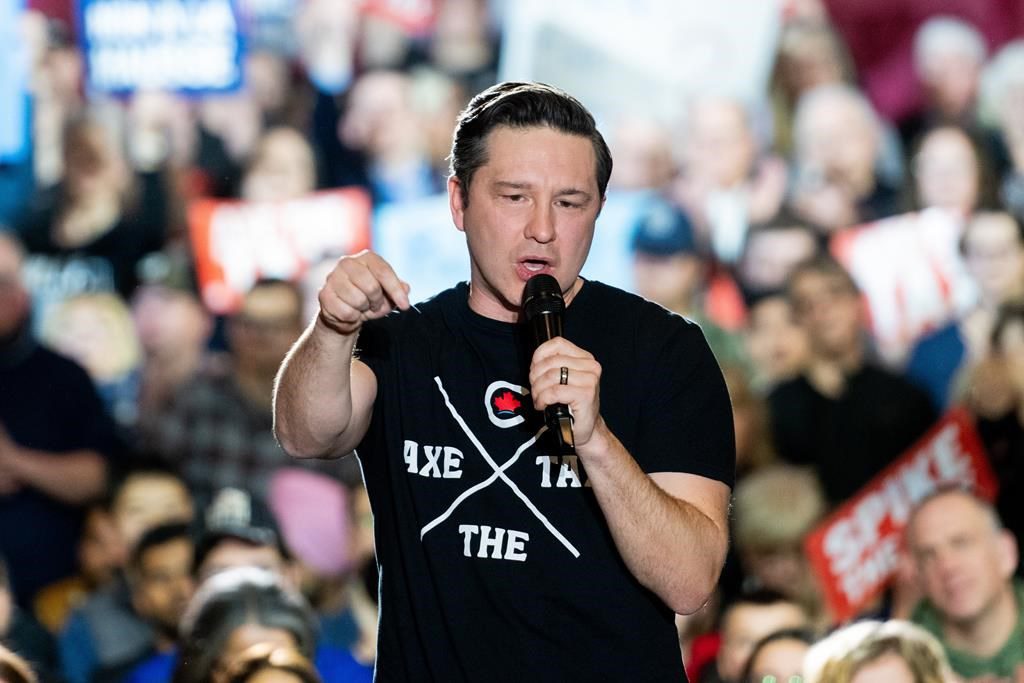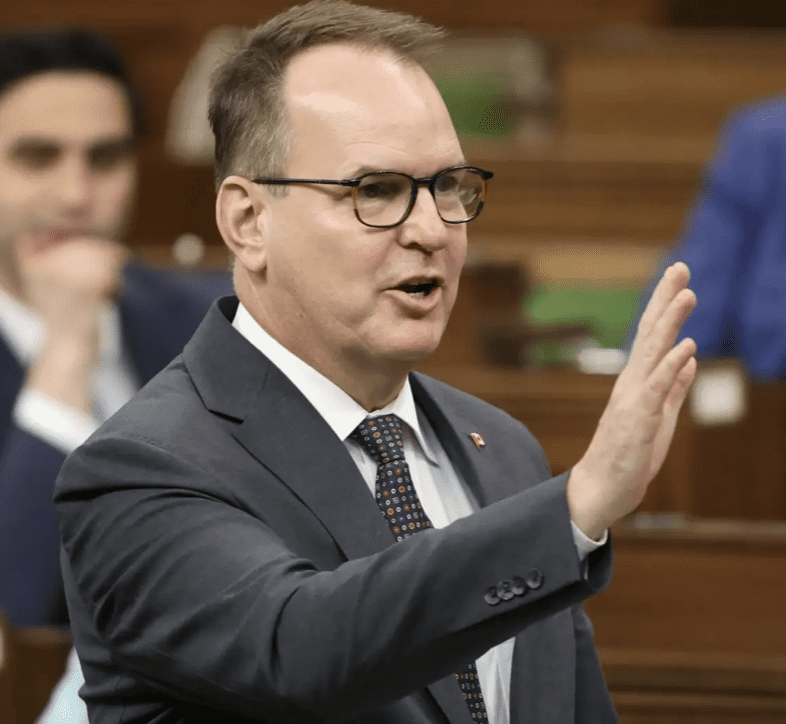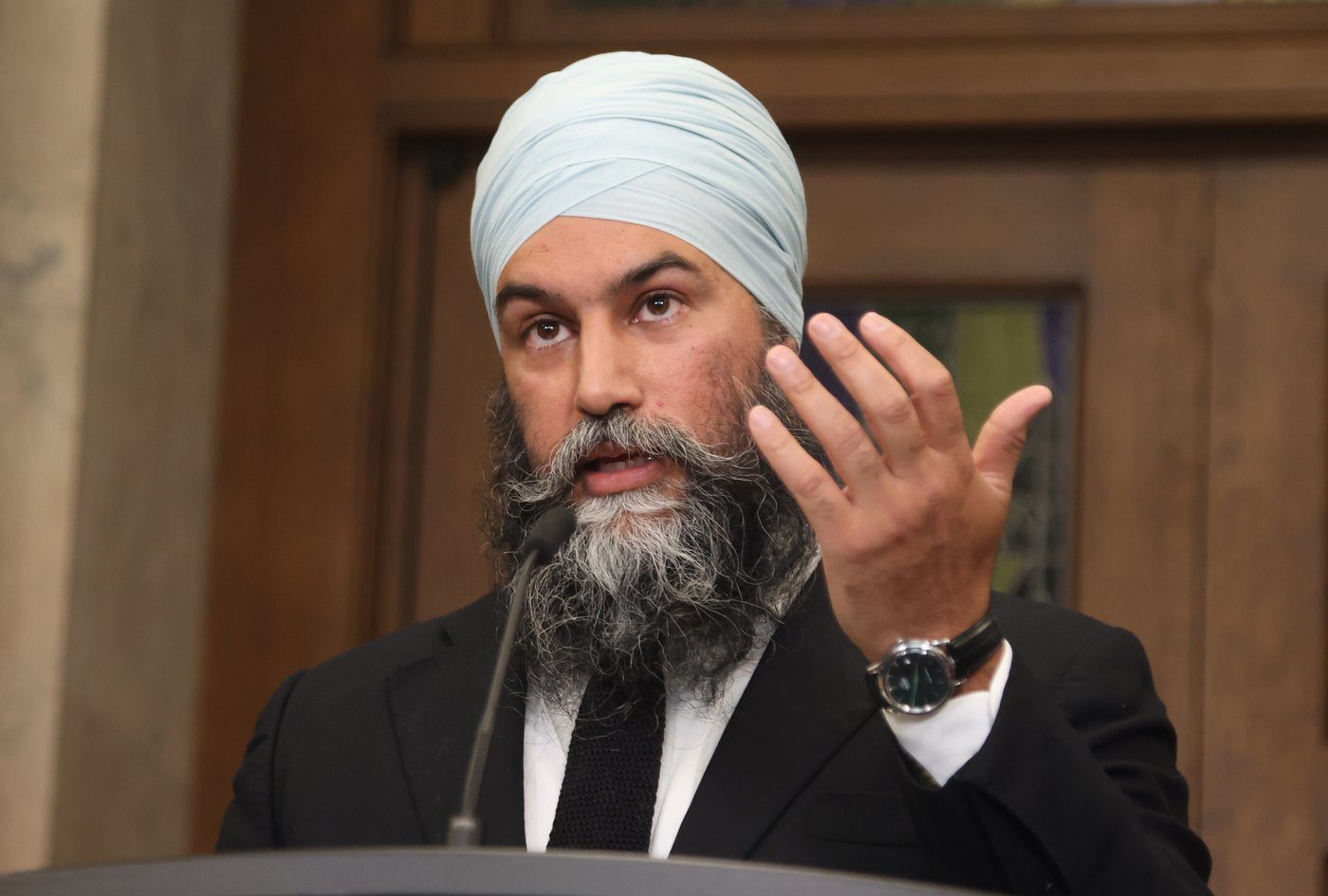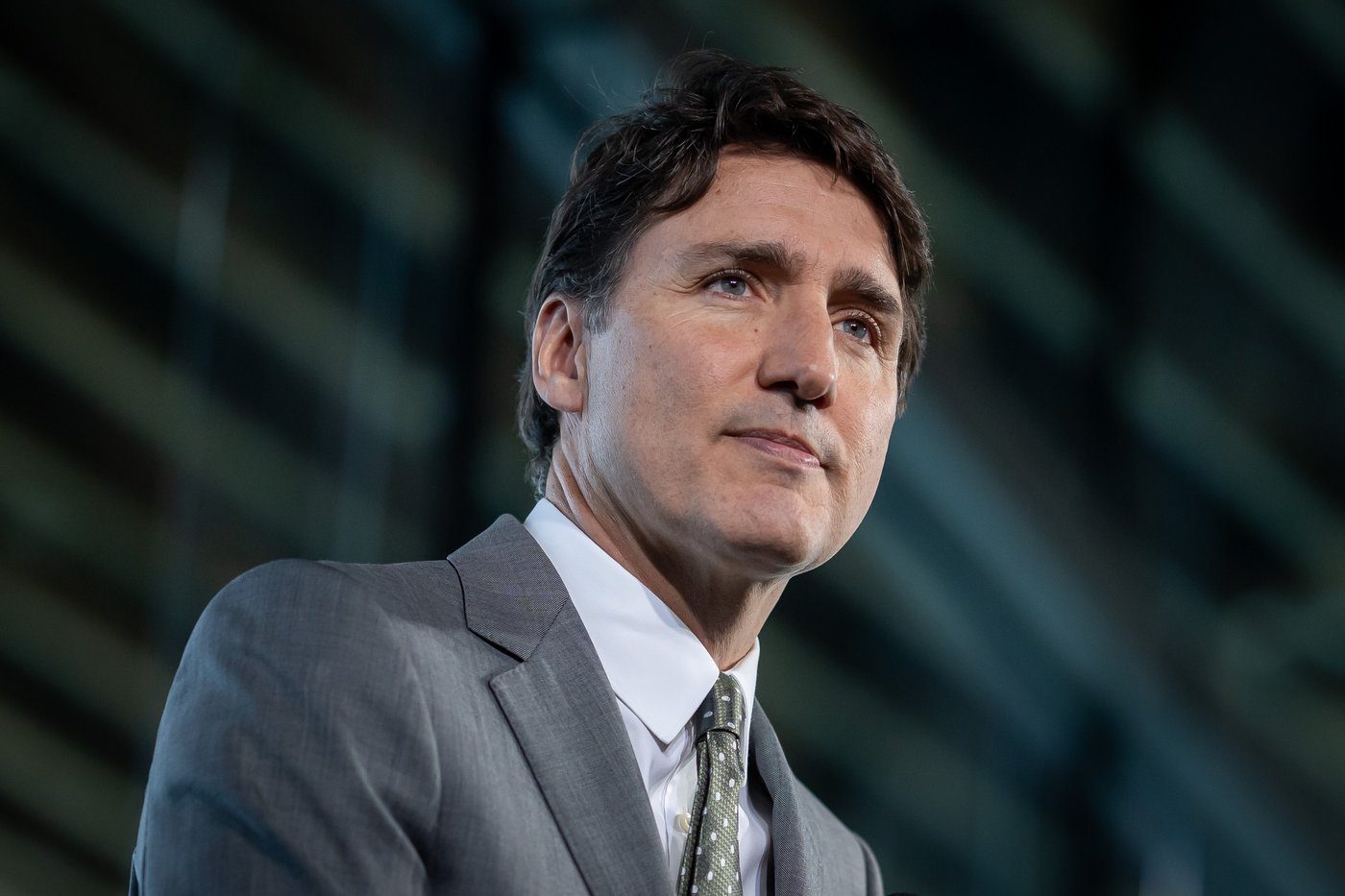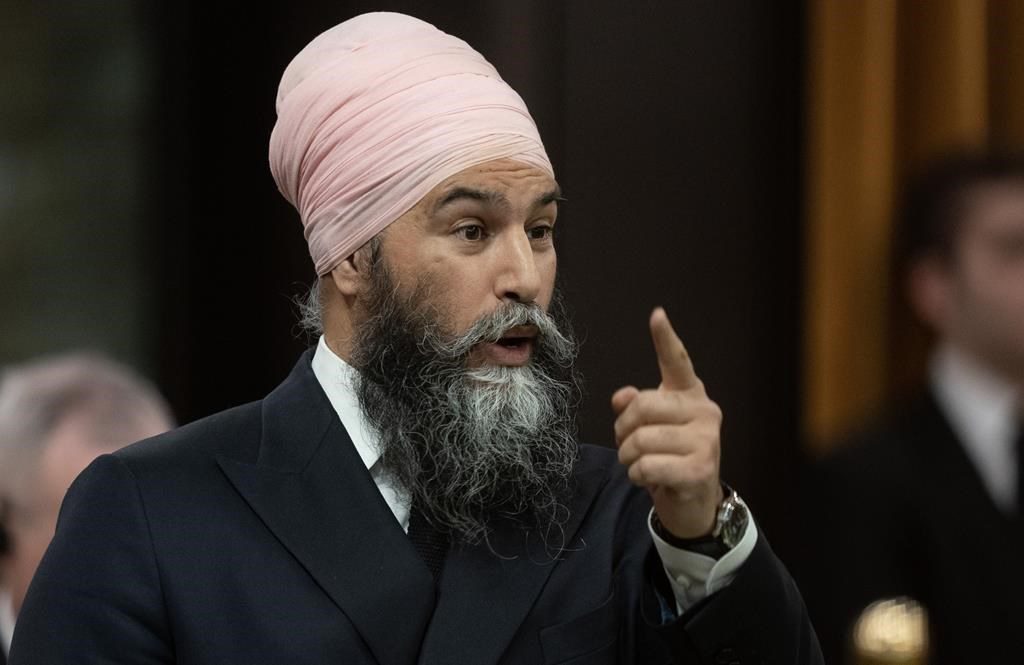At first glance, Jagmeet Singh’s decision to pull out of the Supply and Confidence agreement with the Liberals is a hard blow for Justin Trudeau. His government finds itself in a position of instability while the Liberal Party is at its lowest in the polls.
The ending of the Liberal-NDP alliance has been part of the conversation ever since the deal was signed in March 2022. This was also emphasized within the NDP ranks: “Leaving the agreement has always been and will always be on the table for Jagmeet Singh,” stated NDP Deputy Leader Alexandre Boulerice a few days ago.
In the fall of 2022, Jagmeet Singh was already threatening to break the agreement if the government did not find solutions to the children’s health care crisis. At last fall’s convention in Hamilton, NDP delegates voted unanimously for a resolution stating that the NDP would withdraw from the agreement if the Liberals did not deliver on pharmacare. Since the signing of the agreement, the Liberals have missed several deadlines that could have allowed the NDP to withdraw its support. Each time, the NDP preferred to buy time, sometimes even by raising the stakes.
So why now?
The measures provided for in the agreement were adopted and implemented, perhaps more slowly than the NDP would have liked. Still it is difficult for the NDP to claim that the Liberal Party stopped delivering on the agreement during the summer months.
Several NDP MPs were unhappy with the Trudeau government’s recent decision to impose binding arbitration to end the rail dispute. The party’s labour critic, Matthew Green, said there would be “difficult discussions” at the caucus retreat. By taking the lead, Jagmeet Singh avoided this umpteenth discussion on the future of the agreement.
A few days prior, Pierre Poilievre challenged Jagmeet Singh on the issue. “Canadians cannot afford another year of Justin Trudeau.” He invited Jagmeet Singh to fire Prime Minister Trudeau, accusing the NDP leader of being a sellout.
It’s hard to believe that Pierre Poilievre convinced the NDP by using such inflammatory rhetoric. In truth, the Conservative Party wanted to remind voters of the close association between the Liberals and the NDP. Orange-blue swing voters, the ABL type, Anybody but Liberals, are particularly numerous in the western provinces.
And many of them will get to vote on September 16, in a by-election in the riding of Elmwood-Transcona in Manitoba, an NDP stronghold targeted by the CPC. The Conservatives have finished second to the NDP ten times in the last 11 elections in this riding. They even won it once in 2011. They would love to take it again.
By distancing themselves from Justin Trudeau, the NDP could have a better chance of keeping the seat. As a bonus, distancing themselves from the Liberals in Lasalle-Émard-Verdun, could help to rally anti-Liberal voters behind their candidate Craig Sauvé, a popular municipal councillor.
Jagmeet Singh hopes that the NDP will take advantage of Justin Trudeau’s unpopularity to establish itself as the alternative to the Conservatives by attracting disappointed Liberal voters who are afraid of Pierre Poilievre. The framing was evident in his press conference in the aftermath of the breakup. Because the Liberals are “weak”, the “election is going to be about an important choice, between the cuts of Pierre Poilievre, and New Democrats who want to build a better future for you.”
In an ideal world, the drop in support for Justin Trudeau’s government in recent years should have benefited the NDP as much as the Conservative Party. However, polls show that at best, the NDP has been capped at under 20% since the signing of the agreement, while the Conservatives are up and the Liberals down.
Without momentum, the NDP was at risk of being swept away by the blue wave that is currently threatening the Liberal Party. A Léger poll, published on August 26, foreshadowed this phenomenon, with the firm showing the NDP down five points (from 20% to 15%) in one month (other, more recent polls are less clear on this point). It may not be directly linked, but clearly, the party no longer wants to pay the political price of supporting Justin Trudeau. Yet, NDP strategists realize that the conditions are not right to bring down the government.
In terms of public policies, the fall of the Trudeau government could jeopardize several of the initiatives brought forward by the NDP, such as dental care, pharmacare and the extension of the Rapid Affordable Housing Initiative. Indeed current polls show that there is a real risk of seeing a Conservative government hostile to these measures take power.
While the NDP emphasizes that the end of the agreement does not automatically send voters to the polls, the fact remains that the door is wide open.
By giving up his exclusivity on the balance of power, Jagmeet Singh is also giving Yves-François Blanchet and the Bloc Québécois the opportunity to take advantage of it. With several files causing tensions between Quebec and Ottawa, the Bloc could use it to extract concessions from the federal government and “make gains for Quebec” in this last year before the election, scheduled for October 2025. A comfortable chair for Yves-François Blanchet, who could prove the Bloc’s usefulness close to the election deadline and yet not worry about going to the polls now.
At any rate, the Liberal government will have to survive on a case-by-case basis. Confidence issues will arise quickly. The Liberals now know that they can no longer trust the NDP. If the Bloc Québécois refuses to dance with the government, the NDP will quickly be confronted with the consequences of its decision: either support the Trudeau government while getting little or nothing in return, or rush the country into an election while Pierre Poilievre has the wind in his sails.



